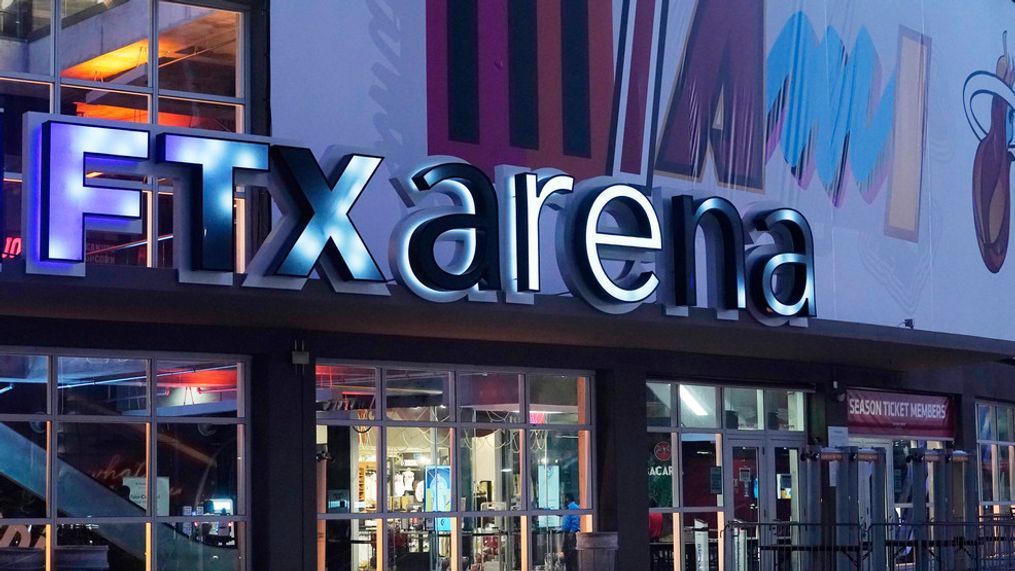Crypto rules preventing another FTX-style meltdown might be impossible, analysts warn

HUNT VALLEY, Md. (TND) — Investigators are still sifting through the carnage after cryptocurrency exchange FTX collapsed, which triggered politicians and regulators to point fingers at who is to blame for not doing more about a mostly unregulated digital asset industry. FTX's founder is now under investigation for possibly violating financial rules leading up to the multi-billion dollar company's fall from grace.
The day before its collapse, FTX exchange held about $900 million in assets against more than $9 billion in liabilities, according to the Financial Times. The report suggested investors will lose out on millions before the dust settles. Much of the assets listed on the exchange's balance sheet come from the $470 million in Robinhood shares owned by founder Sam Bankman Fried, who was worth roughly $16 billion at the beginning of last week before losing everything by Friday.
FTX claimed to have enough assets to satisfy withdrawals, but it failed to disclose the market price of those assets was determined by trading back and forth with one of its subsidiaries, Alameda Research. Investors became worried that FTX did not have enough assets, prompting a type of bank run on the exchange. Lawmakers, regulators, and researchers have been working feverishly to determine what went wrong ever since FTX went bankrupt, losing almost 94% of its value in a matter of days.
Sen. Pat Toomey, R-Pa., was one such lawmaker. He told his Twitter followers last week that the debacle "underscores the need for a sensible regulator regime that, among other things, ensures a centralized exchange segregates and safeguards customer assets."
Toomey owned cryptocurrency and complained of burdensome cryptocurrency regulations in a letter last year to the Treasury Department. The Pennsylvania Republican was specifically citing a rule imposing on cryptocurrency transactions record keeping and reporting requirements that extend beyond those required for U.S. dollar transactions.
FTX used money to curry favor with lawmakers from both parties on Capitol Hill. Conservatives have pointed out that Bankman-Fried is a major Democratic donor, pouring tens of millions of dollars into Democratic candidates this year. FTX co-CEO Ryan Salame was also a major donor, but, unlike Bankman-Fried, he gave more than $18 million to Republican campaigns, according to OpenSecrets. org.
Securities and Exchange Commission Chair Gary Gensler is also being criticized for not doing enough to curtail a potential implosion in the industry. He met with Bankman-Fried earlier this year to discuss how to regulate the industry, prompting one CNBC reporter to ask the chairman if he feels like he was "hoodwinked" by Bankman-Fried.
Gensler responded: "I think we've been clear in these meetings. And you can look at my calendar if my calendar is public, many meetings with folks in this industry. Very clear, in these meetings, same message to the public, same message to them. Noncompliance is not going to work."
Gensler began investigating other crypto giants shortly after taking office in 2021. For instance, the SEC served Terra Luna founder Do Kwon with a subpoena before his firm collapsed. Kwon sued the federal regulator, arguing the SEC was trying to embarrass him and the industry.
Other agencies warn cryptocurrencies are now a breeding ground for fraudsters and scammers. Rohit Chopra, director of the Consumer Financial Protection Bureau, is among those arguing the industry is ripe with abuse.
"I think what we're finding is that crypto is becoming a new vector for fraudsters," Chopra told CNBC Monday. Instead of using other methods to bilk people out of money, he said, "crypto is becoming a vehicle of choice for many scammers."
Some analysts believe the only answer is to deem cryptocurrencies illegal.
"We do not need any new crypto regulations, we need handcuffs," Matt Stoller, research director at the American Economic Liberties Project, wrote on Twitter. He believes the SEC and Congress do not have to craft out new regulations to fit the industry.
The industry is intended to scam people out of money and exists outside of the law, according to Stoller, a noted crypto critic. "Congress should just appropriate $100 million to the SEC and the Criminal Division for enforcement in the cryptocurrency space.
Other analysts question whether there is any way to regulate the industry, as it would subject cryptocurrency miners to two competing regulatory bodies. The industry exists across a vast decentralized network called a blockchain, meaning there is no central authority governing who can and should own digital coins.
The infrastructure is a problem, according to Bloomberg financial columnist and podcaster Joe Weisenthal.
Unlike the U.S. dollar, "a cryptocurrency is not a creature of the law. The rules about who can own it, and what constitutes a legitimate transaction are governed by a separate system: the consensus mechanism of a given blockchain," Weisenthal wrote in a Monday newsletter.
Ultimately, thrusting regulations upon the industry "makes coins subject to two competing regulatory and legal systems at the same time," he concluded.